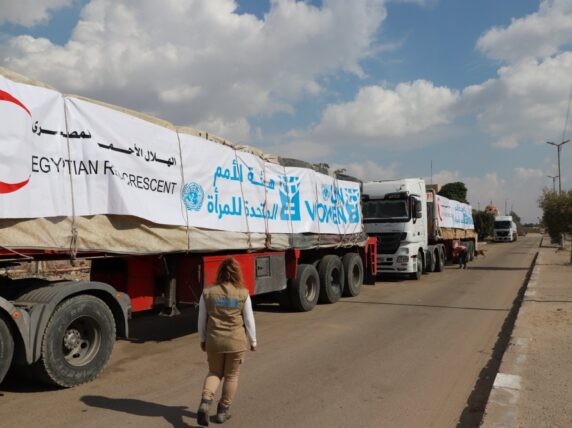How UK aid can stay on track, despite cuts and concerns on transparency
CONCORD’s annual AidWatch report rightly praises the UK for meeting its 0.7% overseas development assistance (ODA) commitment in 2019. But the report raises concerns about the future of UK aid spending.
Recommendations to keep UK aid on track
The UK chapter of the report was co-authored by Bond. We laid out five key recommendations for the UK government:
- Continue to honour the commitment to spend 0.7% of GNI on ODA, with a clear focus on tackling poverty. This spending must be in line with the International Development Act, OECD Development Assistance Committee (DAC) rules and development effectiveness principles as laid out in the Paris Declaration and Accra Agenda for Action.
- Ensure the newly formed Foreign, Commonwealth and Development Office (FCDO) allocates resources to where they are needed most. All aid must reduce poverty and inequality, align with the Sustainable Development Goals (SDGs), the leave no one behind agenda and adhere to other key international agreements.
- Make sure all UK departments spending ODA meet commitments on aid transparency.
- Ringfence aid distributed to the UK’s global Covid-19 response and any aid that supports marginalised people facing poverty, inequality, disease, conflict and climate change.
- Remain committed to collective action on the global stage and seek to strengthen the commitment to meeting OECD DAC rules on aid spending, to prevent any misuse of aid money.
Difficult times for UK aid
Falling GNI projections have already led to £2.9 billion in cuts to the UK’s aid budget. The UK government’s commitment to “ensure we meet, but do not exceed the 0.7% commitment” will likely see the aid budget shrink further at a time when global needs continue to rise.
Difficult decisions will have to be made about where the remaining ODA will have the most positive impact.
Subscribe to our newsletter
Our weekly email newsletter, Network News, is an indispensable weekly digest of the latest updates on funding, jobs, resources, news and learning opportunities in the international development sector.
Get Network NewsThe report expresses concern that UK aid will be increasingly used as a tool to secure trade deals or narrow security interests, rather than poverty reduction following the merger of DFID and FCO.
In response to the report, Simon Starling, our director of policy advocacy and research, said:
“The UK remains one of a handful of European countries that delivers on 0.7% ODA pledge and should be commended for that. However, with ODA in decline and £2.9bn worth of cuts being made to UK programmes on the ground, it is now more important than ever that UK aid delivers for the people who need it the most.
“With the fallout from the Coronavirus pandemic threatening to wipe out years of progress on poverty reduction, not a single penny should be diverted to secure trade deals or achieve narrow, short-term security objectives. Accountability and transparency, as well as abiding by OECD DAC rules and UK legislation around what counts as ‘aid’, are all critical to ensuring this.”
Read the full AidWatch report.




